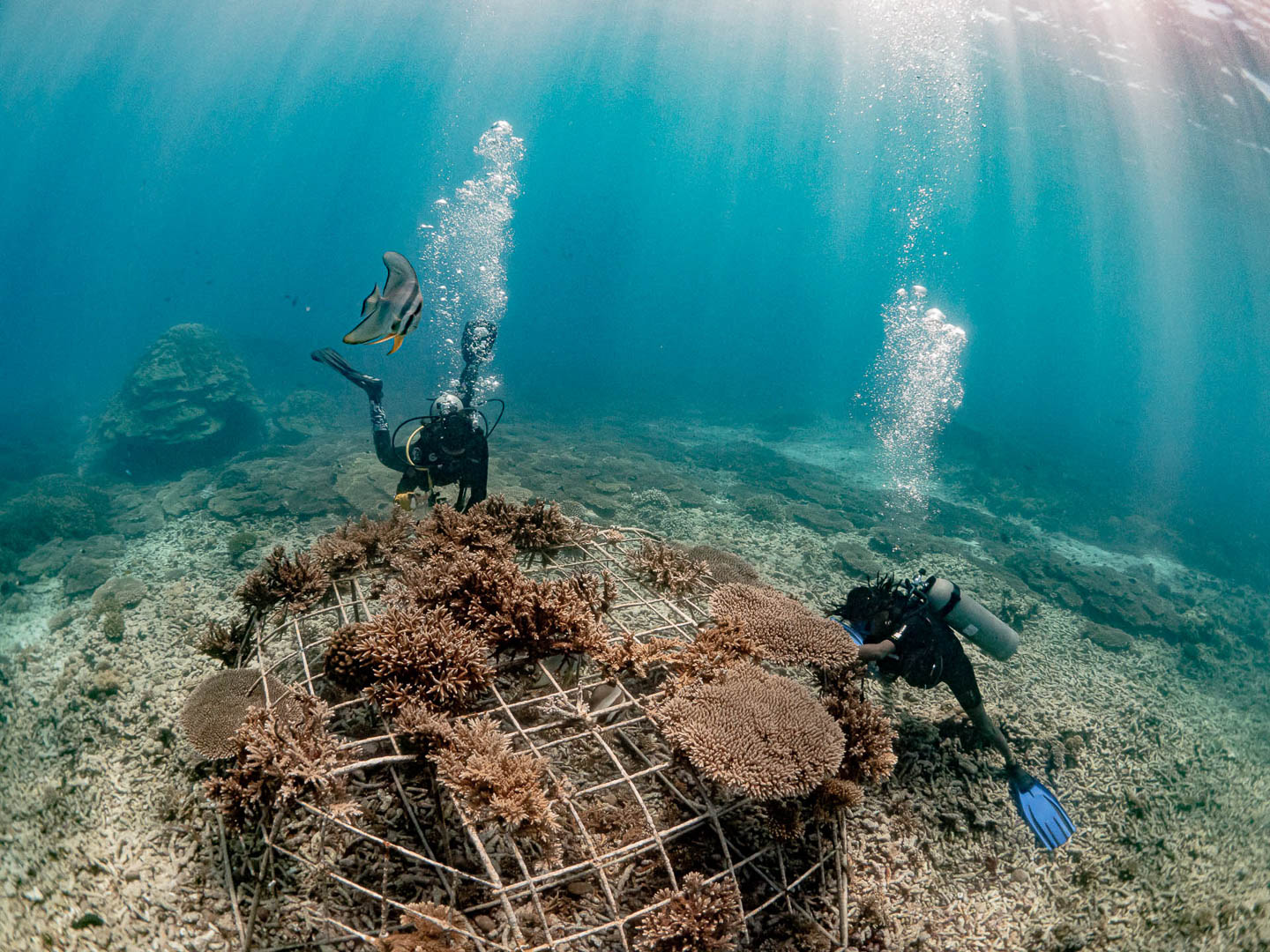
Collecting data to design better coral restoration projects
We are back on Fregate Island in the Seychelles for the 3rd phase of our coral restoration project to continue our research and conservation work on the local reef supported by the Mineral Accretion Technology (MAT). This time we will focus on finding the most cost efficient way to power and maintain electrified reef structures. By refining our methods, we hope to find ever more efficient and affordable solutions for reef restoration that can be tailored to different scales, locations and needs.
To do so, we designed a year-long experiment to determine the effect of different durations and timings of electrification on coral growth and health. We have built 40 new MAT table structures, which we will deploy in the shape of a circle at our project site about 220m away from airport beach on Fregate. Over the next month, the Coralive team will work hard to setup the MAT reef structures and electrical system, and attach 640 new coral fragments from four different coral species onto these structures.Whereas we usually power the MAT reefs 24hrs a day, this time we are going to have a mix of structures that receive different amounts of electrification at different times of the day. Some will be powered 24hrs a day, and others only half of the time (either only during daytime or only at night). We will be closely monitoring the corals on these MAT structures over the next year to understand how different electrification treatments affect coral growth and survival. Ultimately, we hope this information will help us design more efficient reefs for places where electrical supply is limited, variable or expensive, for example on remote islands and energy-poor regions.
Other than electrification levels, we will also look at whether different maintenance regimes (i.e. how often divers clean the structures to remove fouling algae or sponges) affect coral growth, health and survival. This information will help us choose the most time efficient maintenance schedule for future projects. The current work builds on our first preliminary electrical reef study conducted in 2018 (Video) where we determined that 24hrs electrification improves the growth rate and survival of local coral species significantly.
A year of work ahead
This is time-consuming and detailed work, and we are happy to have the support of Coralive’s new intern from the University of Cote d’Azur, Julie Pezin. She will be running this experiment with the help from the Fregate Island Sanctuary conservation team, led by Anna Zora-Hastings. Besides, being in-charge of making sure the experiment goes smoothly and collecting data, she will also be introducing new volunteers to the project and overseeing their work on the reefs. We look forward to her reports from the field over the next year.
Understanding and preserving the Fregate Island coral reefs
Coralive is in partnership with Blancpain and Fregate Island Sanctuary to study, restore and preserve the marine environment around island. This is a multi-year partnership with different activities to gather data and build a community with best practices to support the longer-term vision of creating a marine protected area around the island.
We have complemented field experiments in the past with the detailed biodiversity surveys of the surrounding reef in partnership with BlueNomads.org, the Green Islands Foundation, the University of the Seychelles, and the Seychelles Conservation and Climate Adaptation Trust. This data forms the basis for a long-term monitoring program of the marine area around the island, and will allow ecosystem managers to identify trends in the abundance and community structure of reef fish and coral communities over time.
